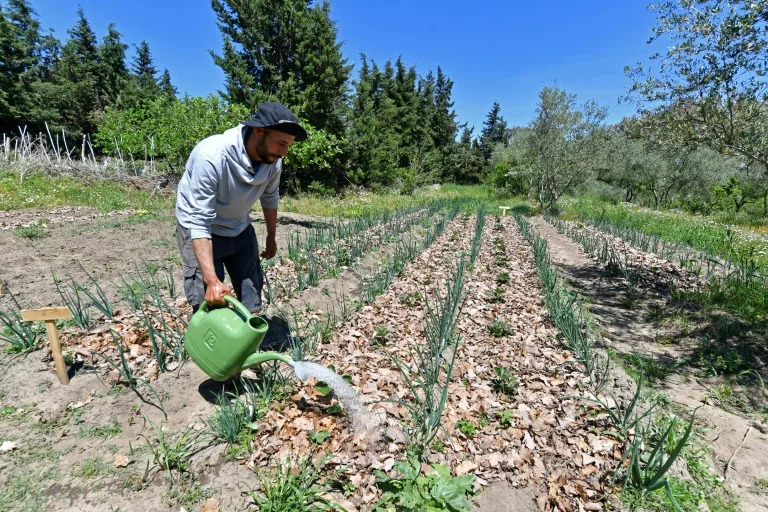Permaculture takes root in Tunisia

Permaculture techniques are taking root in Tunisia, as a way to confront global warming and manage its effects, according to Al Arab.
The concept of permaculture was first created by two Australian environmental scientists in the 1970s– this approach to agriculture believes that all natural elements are interdependent and that a more holistic approach is needed to farming.
READ: Tunisia braces itself for massive drought this summer
Farmer, Saber Al-Zawani, located in the Cap Negro region, has taken to the concept of permaculture, saying that it “constitutes” a return to traditional methods of farming. Even with unprecedented drought and the effects of climate change present in Tunisia, Al-Zawani has used his resources to cut his water consumption in half. Al-Zawani collects rainwater, uses the natural fertilizer from his animals to strengthen his crops, only uses seeds from his own crops, and rations the water at his disposal.
Using his innovative techniques, Al-Zawani has managed to become self-sufficient in food, providing for himself, his parents, and his brother.
READ: Tunisia’s fragile finances amidst bread crisis
Al-Zawani, like many others, lost his job during the Covid-19 pandemic. This is when he found the Tunisian Association for Sustainable Agriculture and became a beneficiary of the “Cultivate Your Land” project. This program not only trained Al-Zawani free of charge but also allowed him to purchase basic equipment and necessities for his venture. The main goal of it is to show just how necessary, efficient and sustainable farming systems are for the future of Tunisian agriculture and prosperity. In the program the main emphasis is on farming techniques that restore biodiversity, and limit the use of harmful and exhausting techniques and chemicals.
Looking to the future, Al-Zawani plans to renovate his farm into a training center for permaculture techniques, teaching others the methods from which he has benefitted so much.
Al Arab
Want to chase the pulse of North Africa?
Subscribe to receive our FREE weekly PDF magazine













